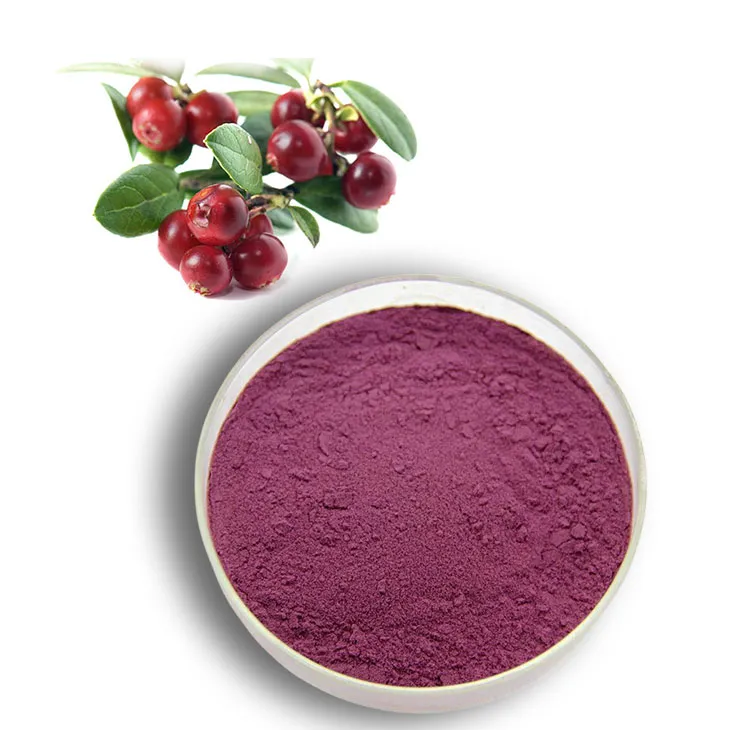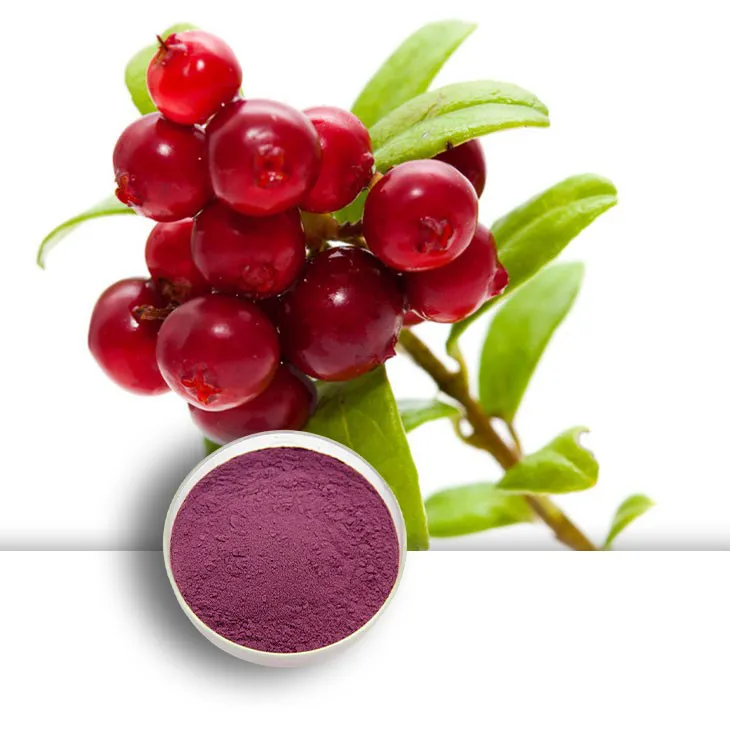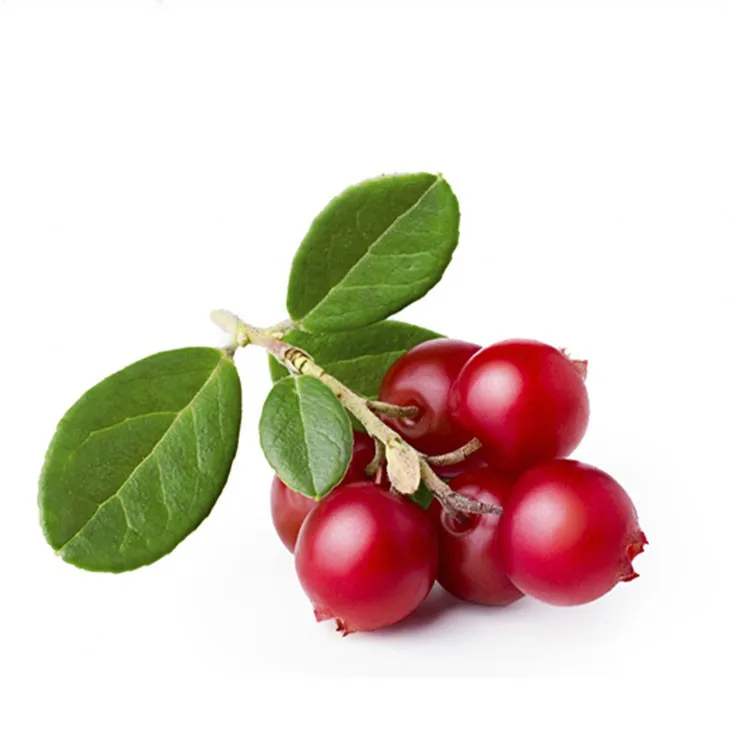- 0086-571-85302990
- sales@greenskybio.com
Is European bilberry extract beneficial for diabetes? Are these all safe and applicable for diabetic patients?
2024-11-13

1. Introduction
Diabetes is a chronic metabolic disorder that affects millions of people worldwide. It is characterized by high blood glucose levels due to either insufficient insulin production or the body's inability to effectively use insulin. Management of diabetes often involves a combination of lifestyle changes, medications, and in some cases, dietary supplements. European Bilberry Extract has gained attention as a potential supplement for diabetic patients. This article will explore in - depth whether European Bilberry Extract is beneficial and safe for those with diabetes.

2. What is European Bilberry?
The European bilberry (Vaccinium myrtillus) is a small, dark - blue berry native to Europe. It has been used in traditional medicine for centuries. The berries are rich in various bioactive compounds, including anthocyanins, flavonoids, and phenolic acids. These compounds are believed to be responsible for many of the potential health benefits associated with bilberry.

3. Potential Benefits for Diabetes
3.1. Blood Glucose Regulation
One of the main areas of interest regarding European Bilberry Extract in diabetes is its potential to regulate blood glucose levels. Some studies suggest that the anthocyanins in bilberry may improve insulin sensitivity. Insulin sensitivity is crucial in diabetes as it determines how effectively the body can use insulin to lower blood glucose levels. In animal studies, bilberry extract has been shown to reduce blood glucose levels by enhancing insulin - mediated glucose uptake in cells. However, human studies in this regard are still limited, and more research is needed to confirm these effects in diabetic patients.
3.2. Antioxidant Effects
Diabetes is associated with increased oxidative stress, which can damage cells and tissues over time. European bilberry extract is a rich source of antioxidants. Antioxidants help to neutralize harmful free radicals in the body. By reducing oxidative stress, bilberry extract may potentially protect against some of the long - term complications of diabetes, such as diabetic neuropathy, retinopathy, and nephropathy. For example, in vitro studies have shown that bilberry anthocyanins can scavenge free radicals and protect endothelial cells from oxidative damage, which is relevant in the context of diabetic vascular complications.
3.3. Anti - inflammatory Properties
Chronic inflammation is another factor contributing to the development and progression of diabetes. European bilberry extract has demonstrated anti - inflammatory properties. The flavonoids and phenolic acids present in bilberry can inhibit the production of inflammatory mediators in the body. This anti - inflammatory effect may help in reducing insulin resistance, which is often associated with inflammation in adipose tissue and muscle cells. In addition, it could potentially slow down the progression of diabetic complications related to inflammation, such as joint problems and cardiovascular diseases.

4. Safety Considerations
4.1. General Safety
European bilberry extract is generally considered safe when consumed in moderation. In normal dietary amounts, the berries themselves are a common part of the European diet. However, when used as a supplement, there are some factors to consider. High - dose supplements may cause adverse effects such as gastrointestinal disturbances, including nausea, vomiting, and diarrhea. It is important to follow the recommended dosage guidelines when taking bilberry supplements.
4.2. Interaction with Medications
Diabetic patients often take medications to control their blood glucose levels. There is a potential for interaction between European bilberry extract and diabetes medications. For example, bilberry may enhance the hypoglycemic effects of some medications, increasing the risk of low blood sugar (hypoglycemia). Therefore, patients should consult their healthcare providers before starting bilberry extract supplementation, especially if they are on multiple medications.
4.3. Purity and Quality of Supplements
The supplement market is not always well - regulated, and the quality and purity of European bilberry extract supplements can vary widely. Some products may contain contaminants or may not have the claimed amount of active ingredients. It is crucial for consumers to choose high - quality supplements from reliable sources. Look for products that have been tested for purity and potency.
5. Current Research and Limitations
While there is some promising evidence regarding the potential benefits of European bilberry extract in diabetes, current research has several limitations. As mentioned earlier, many of the studies have been conducted in animals or in vitro, and human clinical trials are relatively scarce. The small number of human studies often have short durations and small sample sizes, which limit the generalizability of the results. Additionally, the exact mechanisms by which bilberry extract may affect diabetes are not fully understood. More long - term, large - scale human studies are needed to better define the role of bilberry extract in diabetes management.
6. Conclusion
European bilberry extract shows potential benefits for diabetes in terms of blood glucose regulation, antioxidant effects, and anti - inflammatory properties. However, safety considerations, such as potential interactions with medications and the importance of choosing high - quality supplements, cannot be overlooked. Given the current state of research, it is premature to recommend European bilberry extract as a standard treatment for diabetes. Diabetic patients who are interested in trying bilberry extract should first consult their healthcare providers. Future research should focus on conducting more comprehensive human trials to further clarify the benefits and safety of European bilberry extract in diabetes management.
FAQ:
1. What is European bilberry extract?
European bilberry extract is derived from the fruits of the European bilberry (Vaccinium myrtillus). It contains various bioactive compounds such as anthocyanins, which are known for their antioxidant properties.
2. How might European bilberry extract be beneficial for diabetes?
Some studies suggest that the anthocyanins in European bilberry extract may help improve insulin sensitivity. They may also have a role in reducing blood sugar levels by influencing glucose metabolism in the body. Additionally, its antioxidant properties can potentially protect pancreatic beta - cells from oxidative stress, which are important for insulin production.
3. Are there any potential risks or side effects of European bilberry extract for diabetic patients?
While generally considered safe in moderate amounts, some people may experience side effects such as gastrointestinal discomfort, including diarrhea, nausea, or abdominal pain. Also, European bilberry extract may interact with certain medications that diabetic patients might be taking, for example, drugs for blood thinning or blood pressure control. It's important for diabetic patients to consult their healthcare providers before starting to take it.
4. How much European bilberry extract is safe for diabetic patients?
There is no one - size - fits - fits - all answer. The safe dosage can vary depending on factors such as an individual's overall health, other medications they are taking, and the specific form of the extract. Generally, it's advisable to start with a low dose and gradually increase it under the supervision of a healthcare provider.
5. Can European bilberry extract replace diabetes medications?
No. European bilberry extract should not be considered a replacement for diabetes medications prescribed by a doctor. While it may have some beneficial effects on blood sugar control, it is not sufficient on its own to manage diabetes. Diabetic patients should continue to take their prescribed medications as directed and view the extract as a potential complementary therapy if deemed safe by their healthcare provider.
Related literature
- The Role of Anthocyanins from European Bilberry in Diabetes Mellitus"
- "Beneficial Effects of Vaccinium myrtillus Extract on Glucose Metabolism in Diabetic Rats"
- "Safety and Efficacy of Herbal Supplements, including European Bilberry, in Diabetes Care"
- ▶ Hesperidin
- ▶ Citrus Bioflavonoids
- ▶ Plant Extract
- ▶ lycopene
- ▶ Diosmin
- ▶ Grape seed extract
- ▶ Sea buckthorn Juice Powder
- ▶ Fruit Juice Powder
- ▶ Hops Extract
- ▶ Artichoke Extract
- ▶ Mushroom extract
- ▶ Astaxanthin
- ▶ Green Tea Extract
- ▶ Curcumin
- ▶ Horse Chestnut Extract
- ▶ Other Product
- ▶ Boswellia Serrata Extract
- ▶ Resveratrol
- ▶ Marigold Extract
- ▶ Grape Leaf Extract
- ▶ New Product
- ▶ Aminolevulinic acid
- ▶ Cranberry Extract
- ▶ Red Yeast Rice
- ▶ Red Wine Extract
-
Medicinal Marshmallow Extract
2024-11-13
-
Nutmeg Extract
2024-11-13
-
Coconut Water Powder
2024-11-13
-
Eucommia Ulmoides Extract
2024-11-13
-
Golden Seal Extract
2024-11-13
-
Centella Asiatica Extract
2024-11-13
-
Sophora Flavescens Root Extract
2024-11-13
-
Cranberry Extract
2024-11-13
-
White Peony Extract
2024-11-13
-
Ginseng Root Extract
2024-11-13





















